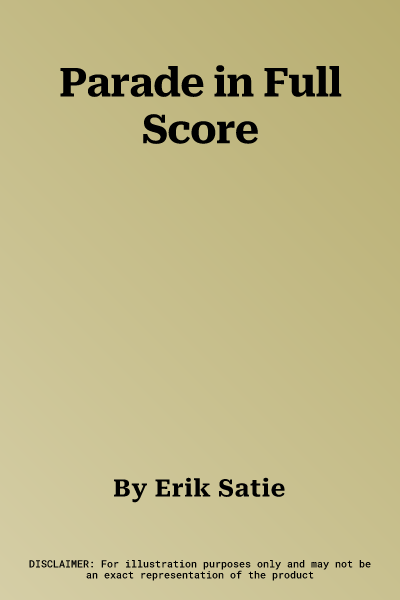Erik Satie
(Author)Parade in Full ScorePaperback, 19 June 2013

Qty
1
Turbo
Ships in 2 - 3 days
Only 1 left
Free Delivery
Cash on Delivery
15 Days
Free Returns
Secure Checkout

Part of Series
Dover Orchestral Music Scores
Part of Series
Dover Music Scores
Print Length
128 pages
Language
English
Publisher
Dover Publications
Date Published
19 Jun 2013
ISBN-10
0486413918
ISBN-13
9780486413914
Description
Product Details
Author:
Book Format:
Paperback
Date Published:
19 June 2013
Dimensions:
30.45 x
22.81 x
0.94 cm
ISBN-10:
0486413918
ISBN-13:
9780486413914
Language:
English
Location:
New York
Pages:
128
Publisher:
Weight:
426.38 gm